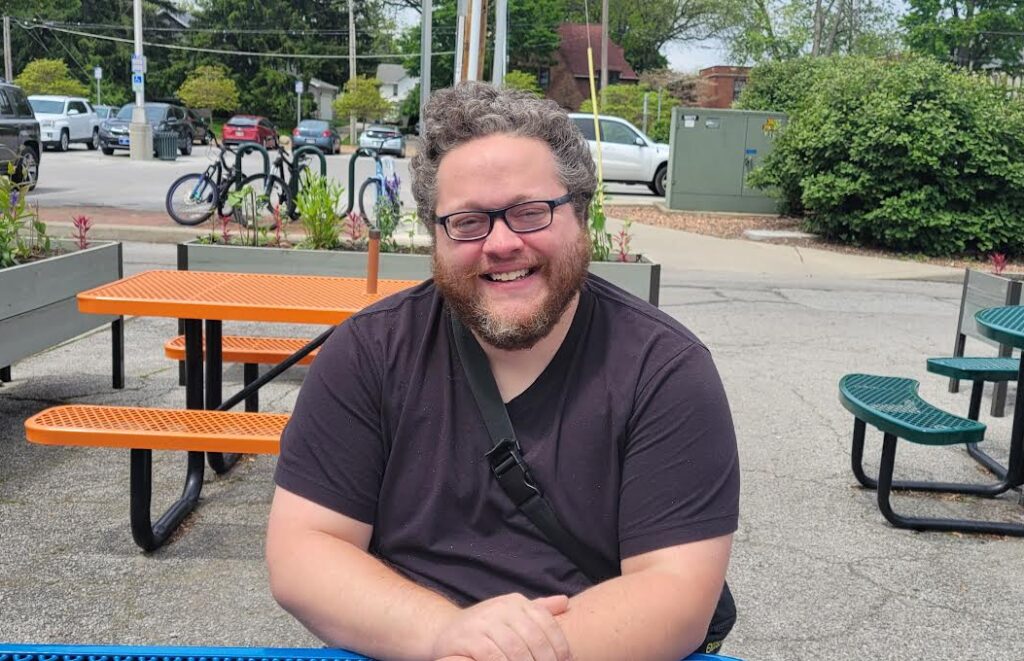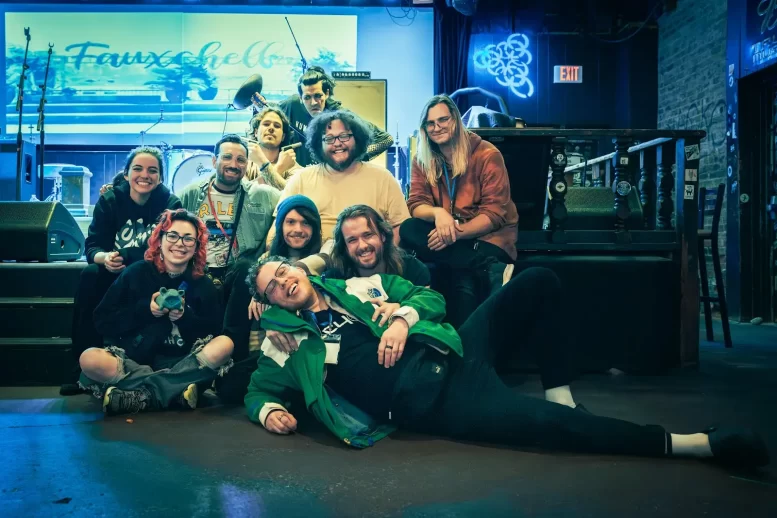By JULES SHINKLE
BG Independent News
When the cease and desist email came, Conor Kinkade thought it had to be a prank. Why would music industry titan AEG bother sending legal threats to some tour manager? Naturally, Kinkade took to Twitter: “hypothetically imagine the second largest concert promoter in the country issuing a c/d to a fest that doesn’t even generate a profit lmao”.
The email was dense with legal jargon, but its main thrust was clear enough: “It has come to our attention that you are running a bogus FAUXCHELLA event, website, and selling merchandise which features the Coachella Intellectual Property and is clearly intended to trade on the substantial goodwill and reputation earned by AEG over the years.”
Fauxchella is (or rather, was) a music festival that’s been hosted in Bowling Green for eight years running. This year’s event will be held on June 13 – 15 at Howard’s Club H and features over 40 bands.
Kinkade is the brainchild behind Fauxchella and Summit Shack, the DIY venue turned booking company that gets the bands for this annual festival. Kinkade fell into the music business as a joke; he and a few pals threw together a fake band called American Spirits for a friend’s mockumentary.
The fake band became a real one, he teamed up with his creative peers to form an arts collective, and said collective decided to put on a show out of Kinkade’s garage – thus, Fauxchella was born.
The show’s scope was so small that invoking Coachella, a festival in Southern California attended by hundreds of thousands people each year, felt like a fitting parody. “Really, it was a nod to an episode of Workaholics,” Kinkade says, referring to the 2011 Comedy Central sitcom.
Clearly, the lawyers out to protect AEG’s “goodwill and reputation” do not share the same sense of humor.
Kinkade found himself working as a pro bono tour manager for a friend’s band, and he turned out to be quite talented at the job. His knack for the music industry translated well to the rising ambitions of Fauxchella, which outgrew the garage and has been held at Howard’s Club H intermittently since 2019.
Last year’s festival sold out in two months. This year, tickets were gone in two days.
Fauxchella has garnered a strong reputation among midwest emo listeners. It’s a subgenre home to intricate guitar work, screaming vocalists, catchy melodic hooks, and cathartic lyrics.
When on tour, Kinkade would get recognized by folks saying “Hey, you’re Conor right? You do Faux? I’ve always wanted to go.” It’s taken a lot of work and perseverance to have a musical festival take off the way it has in Bowling Green.

Once Kinkade found himself legal aid and confirmed that the email was legitimate, he considered his options. Taking the fight to court was far from financially viable, but he was curious to see what steps AEG would take to enforce their cease and desist order.
So with a bit of righteous snark, Kinkade’s lawyer told them to pound sand. Kinkade kept posting the festival promo flier, daring them to follow up. Two hours later, Summit Shack’s Twitter account was suspended from the platform. All posts mentioning Fauxchella on Kinkade’s Facebook and Instagram accounts were taken down.
“It sucks to lose the name and eight years of branding and build up,” said Kinkade. He’s disappointed, but largely undeterred. The show remains sold out, and he has plans for taking next year’s festival to Cleveland. With how quick tickets went the past couple years, there’s probably enough demand to fill out a venue larger than Howard’s.
To comply with the cease and desist, Kinkade has re-uploaded a new flier. It’s nearly identical to the old one, but the letters “chella” have been not-so-subtly edited from the poster, leaving a gaping blank space between “Faux” and “8.” Hopefully, this name sticks.






